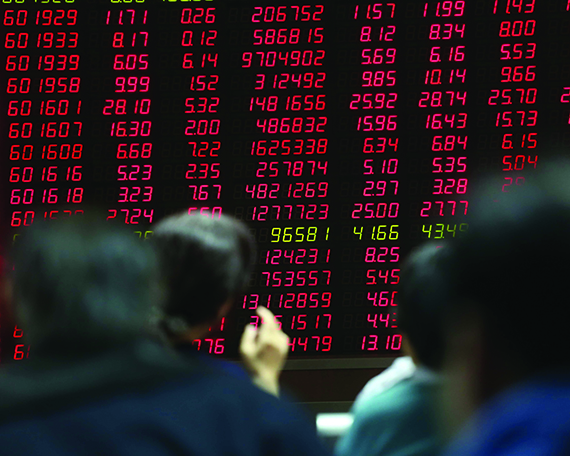Uncertainty continues to grip global markets following this week’s dramatic falls in share prices in China and beyond. Opinion is divided over which direction markets will take and whether we are encountering a short-term correction or a longer-term drop off. EG examines the best- and worst-case scenarios for UK property
Limited impact scenario
Yields initially soften for assets in the UK and Europe as capital flies back to China
⇓
Investment managers are able to get better returns for funds by deploying capital more efficiently and income returns improve as yields move out
⇓
The quality of investment managers improves as investors become more discerning and move away from underperforming managers
⇓
Further Yuan devaluation increases Chinese exports to the US and Europe, lowering business costs outside of China and pushing back interest rate rises later into 2016 to prevent deflation
⇓
As the UK market strengthens, a further flight to quality from the emerging markets helps support and even increase global investment into the UK’s property sector
.
The collapse of Chinese share prices could benefit the UK property market in the long run, a number of property industry leaders believe.
Bill Hughes, head of real assets at Legal & General Investment Managers, says: “The market volatility in China will inevitably result in a reconsideration of strategic and tactical asset allocation.
“Against this background, volatility in equities and commodities will, for many, serve to remind investors of the merits of property as a long-term, lower-volatility, low-correlation asset class.”
The downward pressure on commodities and the devaluation of the yuan may also keep inflation in check across the US and Europe, pushing out the date at which interest rates rise.
“That is good news for managers out there that rely on spreads such as debt funds and NPL buyers,” says Will Rowson, partner at real estate advisory firm Hodes Weill.
In addition, while capital may flow out of the market back to China, the softening of capital values this may cause in the medium term is expected to be beneficial to income yields.
Rowson also believes that the turmoil in the market may not affect major investors. “The wealth of that country is so vast it is difficult to gauge if this will even move the needle at all,” he says.
Major impact scenario
As uncertainty hits, the global economy reacts by withdrawing from investment activity, especially in alternatives such as real estate
⇓
Investment is withdrawn from volatile equity markets. First, Listed property suffers a hit, then all property investors, as asset allocations to real estate rise beyond acceptable risk limits
⇓
Deals in mid-negotiation or major projects with finance from Chinese investors are pulled as they shore up onshore investments
⇓
Falling Exports of luxury cars and other goods reduces demand for logistics sites and reduced tourism softens yields for prime London retail
⇓
Sale of substantial Chinese-held US Dollar assets leads to interest rate rises in the US and Europe. Bond yields rise to meet property yields. Investment market dries up over longer term
.
The withdrawal of Chinese capital back to the mainland will be the most immediate effect of the current crisis, warn experts.
This could spell the end for some smaller fund managers and the withdrawal of support from some development projects.
It is commodity price changes, however, that may have the greatest immediate effect, believes Jose Pellicer, head of research and partner at Rockspring. Commodity-reliant companies such as Rio Tinto or Shell may cut back their demand for office space. Industrial demand, particularly from the car and heavy plant industries, may also be affected by a cut in exports to China.
A greater worry, says Pellicer, would be persistent falls in the Chinese markets and a subsequent over-reaction by the Chinese government. The danger for the property industry is a steep rise in US interest rates prompted by a Chinese government sell-off of dollar assets.
If this happens, the markets would see “the nice gap we have between property yields and bond yields narrow to a point where it does not make sense to invest in property anymore”, he says.
Should that happen, it would not only be Chinese investors who abandon the UK’s property market, but also those US and European investors who have been the lifeblood of the sector.











